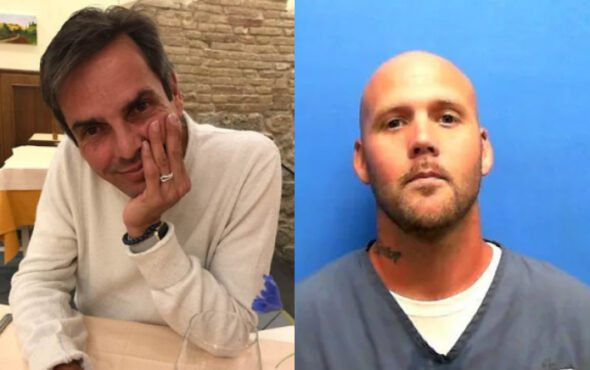
The former roommate of slain Florida LGBTQ+ activist Jorge Diaz-Johnston has been indicted by a grand jury for murder.
Back in January, the body of the beloved community figure was tragically found in a local landfill by Tallahassee Police.
At the time of the discovery, authorities ruled the 54-year-old’s death as a homicide, but a suspect was not named.
However, on 14 April, a grand jury indicted Steven Yinger for the activist’s murder.
According to court documents, Yinger was accused of strangling Diaz-Johnston between 3 January and 5 January – which was a few days before police found his body on 8 January.
Additional charges against the 36-year-old included grand theft, grand theft of a motor vehicle, tampering with evidence and criminal use of a personal ID.
The indictment alleged that Yinger “did unlawfully alter, destroy, conceal, or remove the body of Jorge Diaz-Johnston, [his] iPhone, iPhone accessories and/or computer tablet”, to hinder the investigation.
In a statement to Tallahassee Democrat, state attorney Jack Campbell described Diaz-Johnston’s murder as a “tragedy”.
“I do appreciate the hard work of the grand jury, and we’re going to work hard to get justice for him and his family,” he told the publication.
Before the heartbreaking incident, Diaz-Johnston and Yinger were living together as roommates after meeting during an alcohol recovery program.
In an interview with WPLG, Don Johnston – Diaz-Johnston’s husband – revealed that the two were separated at the time of the arrangement.
“I’m so angry. After all those years of trying to get my husband back, to have him ripped from me for such an utterly senseless reason,” he said.
Don then gave the news outlet details regarding his husband and Yinger’s living situation.
“Jorge didn’t charge him rent, never had expectations, until he could get a job and support himself. That’s who Jorge was,” he explained.
According to the Tallahassee Democrat, Yinger had an extensive criminal history of burglary, battery, and drug charges prior to his indictment.
Additionally, in the days leading up to his recent arrest, he was pulled over by police two separate times, one for driving with a suspended or revoked licence and the second time while driving Diaz-Johnston’s BMW.
Three days after police identified Diaz-Johnston’s body, Yinger was found in a stairwell near the LGBTQ+ activist’s home. After attempting to flee the scene, he was arrested for trespassing, amongst other charges.
Due to violating his probation, the 36-year-old has been in jail ever since.
Before his tragic death, Diaz-Johnston was known for his fierce activism for LGBTQ+ rights.
Back in 2014, he and his husband were one of the six queer couples that sued the Miami-Dade County clerk’s office for their right to marry.
In the end, the court ruled the anti-LGBTQ+ law was unconstitutional, resulting in same-sex marriage becoming legal in Florida.
The landmark decision also came a year before marriage equality was legalised across all 50 states by the Supreme Court.
Yinger’s first court appearance took place on 16 April.



